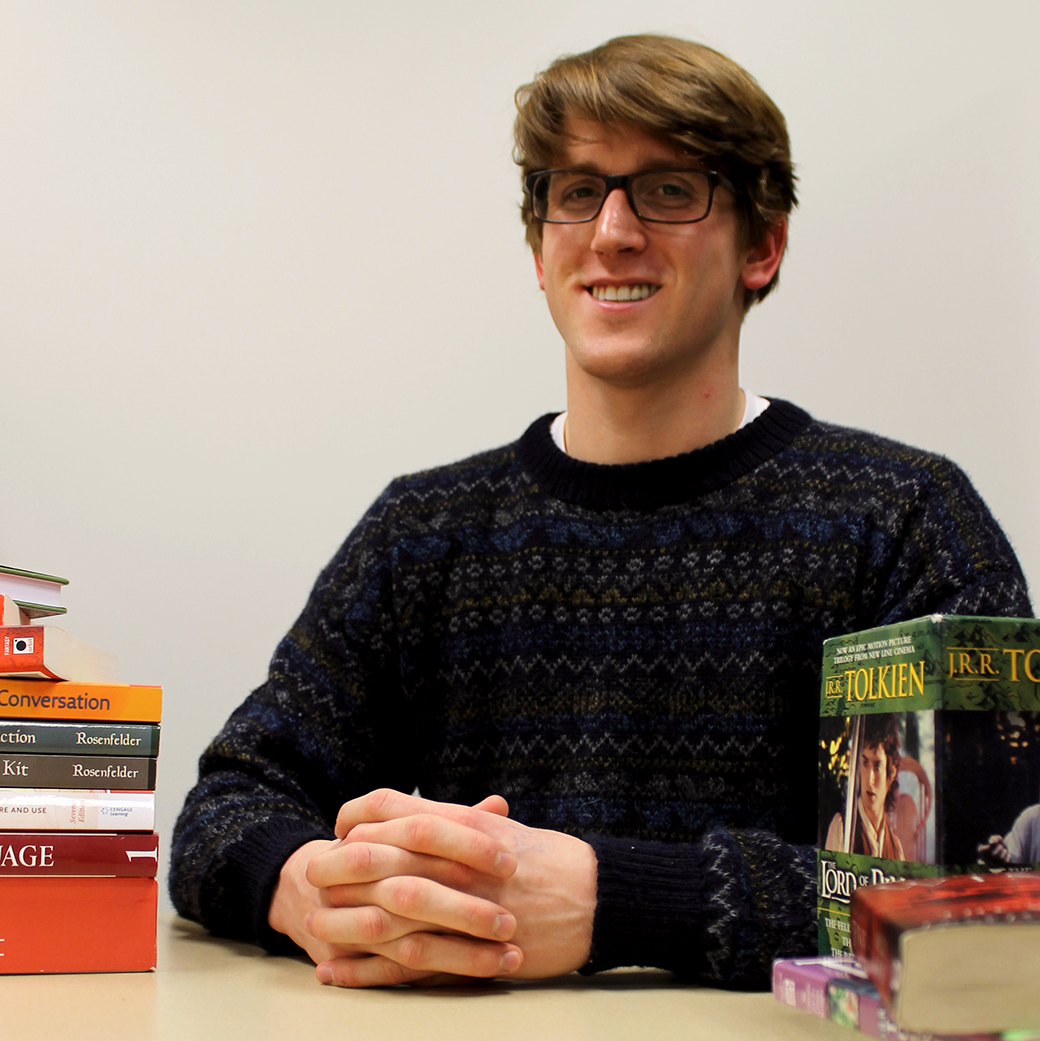
Honors students push academic limits with theses
Although leaders of the United States haven’t yet come up with a successful solution to balancing the federal budget, junior Sydney Duncan thinks she might have the answer to a seemingly impossible endeavor.
“For my honors thesis, my intention is to balance the federal budget in hopes to essentially decrease the deficit of the United States and get us back on track,” Duncan said.
Duncan plans on doing this by cutting out unnecessary expenses and reforming current expenses like social security and Medicaid. She also believes tax increases could help pave the way to a balanced budget.
“I’m a political science and criminal justice double major, so politics has always been really interesting to me,” Duncan said. “Trying to find a feasible way that both parties would be able to agree on…is a big project, but (it’s) something I think has academic worth.”
Duncan said she is in the process of putting together her committee of three faculty members who will help guide and assist her as she works on her thesis.
Reading and doing basic research is also a main focus right now to understand why the budget is the way it is, she said.
“I’m most nervous about how long the project’s going to take,” Duncan said. “Hopefully I’m not putting myself in over my head.”
Scott Breuninger, director of the Honors Department, said Honors students begin preparation for their theses in the fall of their junior year by taking a thesis class that will teach them everything involved with creating a thesis.
“It’s a matter of identifying what types of projects mesh with somebody’s intellectual interests, but are also reasonable to expect that they could be completed over the course of the year,” Breuninger said.
By fall semester of senior year, Honors students should have completed their theses, Breuninger said.
Between 40 to 50 students will be finishing their theses and turning in a final draft to Honors faculty before spring break. Then the students must defend their theses.
“They’re asked questions,” Breuninger said. “They give a presentation, what they’ve researched, what they’ve discovered, why they found this project interesting.”
If everything went well during the process of making the thesis, the defense session could be a conversation between an audience and the student.
“It’s a great opportunity for them to get a sense of closure to this large project,” Breuninger said.
Last semester, senior Colin Krysl defended his thesis about the creation of a new language, which he called “Bohst,” meaning ancestors.
“I’m kind of a nerd. I like ‘Game of Thrones’ and ‘Lord of the Rings,’” Krysl said. “One of my majors is Spanish, so languages have always fascinated me.”
He said while creating a new language, he focused more on linguistics so he had to teach himself a completely new subject. After assembling his committee and researching all he could about linguistics, Krysl began the process of building the language.
“I had to go piece through piece and recreate everything that would basically make a functioning language,” Krysl said.
Making the language included devising case markings for nouns as well as constructing a verb system.
Krysl said he has roughly created 200 words for “Bohst,” which is based off of the languages Old Norse and Skolt Sami.
To make words, he started with looking at words from the dead language Old Norse. Then he took the sound changes for his language, tweaked the words and changed the spellings.
The process was more difficult than expected, but Krysl said working on the thesis gave him some direction for what he’d like to do after graduating.
“It really got me more interested in the field of phonetics, especially language preservation,” Krysl said. “When I did try to look up Skolt Sami, it was so hard to find because it’s an indigenous language. There’s a really big movement in trying to record all these languages before they die.”
Krysl said he also hopes to design more languages and eventually write a book using “Bohst.”
Hayes believes her thesis will enhance her future career in politics.
“Completing a thesis is really good to show employers that you can do the research and that you can think critically about the problems in our nation,” she said. “I think anybody finding a way to look at the problem a different way can be good.”
(Photo: Senior Colin Krysl created a new language called Bohst for his thesis project. Making the language required Krysl to devise case markings for nouns as well as constructing a verb system. Cristina Drey / The Volante)

